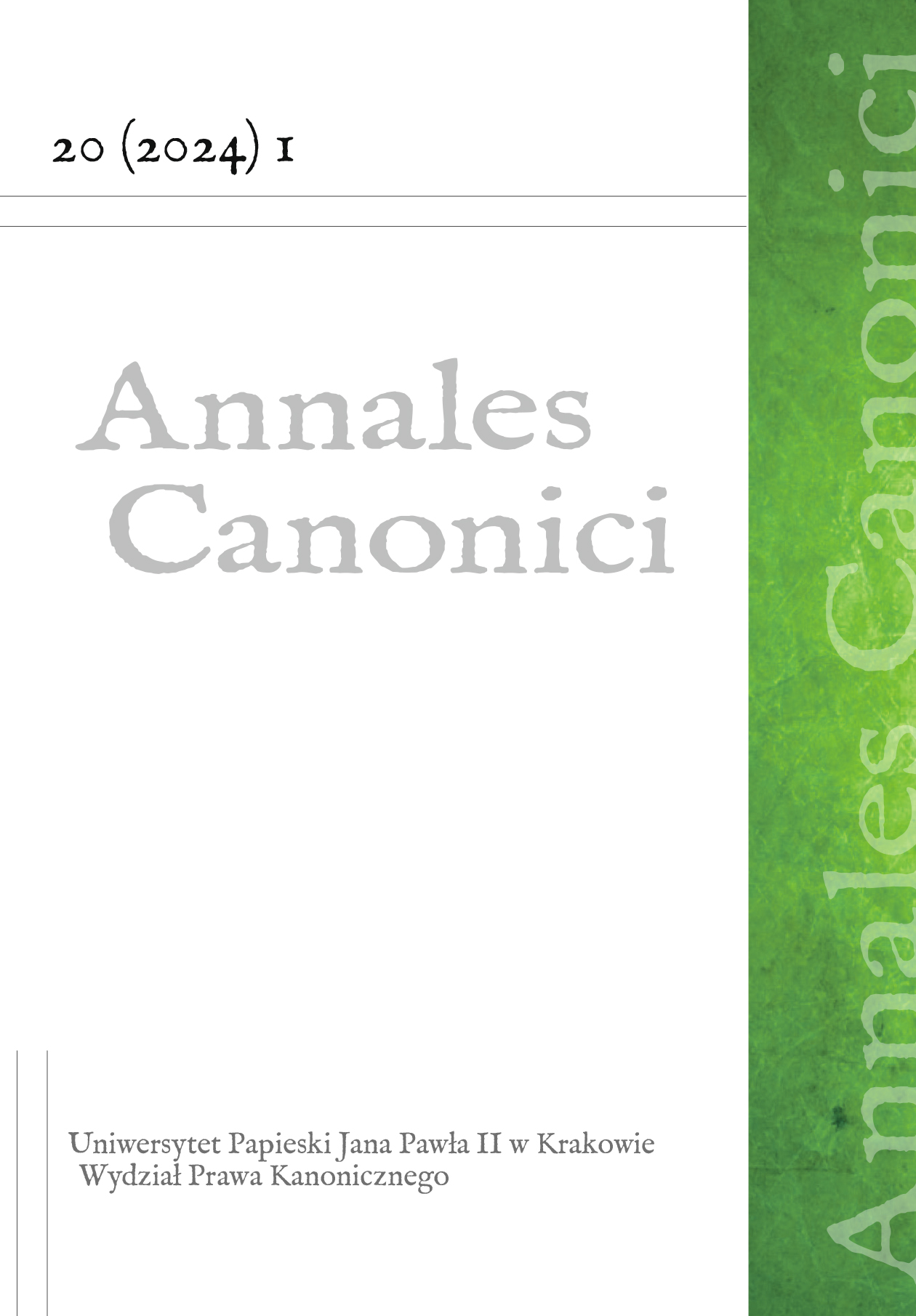Historyczno-prawna analiza domniemania niewinności w prawie kanonicznym
A historical and legal analysis of the presumption of innocence in canon law
Author(s): Daniel KlimkiewiczSubject(s): Law, Constitution, Jurisprudence, Canon Law / Church Law
Published by: Wydawnictwo Naukowe Uniwersytetu Papieskiego Jana Pawła II w Krakowie
Keywords: presumption of innocence; presumption of guilt; presumption of sanity; inquisitorial trial; canonical criminal process
Summary/Abstract: The article discusses the issue of the presumption of innocence from a historical and legal perspective, starting from Roman law to current legal regulations. The 19th century humanisation of criminal law contributed to the legal definition of the principle of the presumption of innocence. The legal system of the Catholic Church advocated the presumption of intentional guilt (pre-Codex period and under the CIC 1917), then the presumption of guilt (CCL 1983). It was not until the 2021 reform of Book VI of the Code of Canon Law that the validity of the presumption of innocence was emphasised (can. 1321 § 1 CCL 1921). This procedural principle has been provided for in non-code regulations on how to proceed in cases of sexual abuse of minors and persons legally equal to them (Congregation for the Doctrine of the Faith, Circular letter to assist Episcopal Conferences in developing Guidelines for dealing with cases of sexual abuses of minors perpetrated by clerics, n. 3; Vos estis lux mundi, Art. 13 § 7; Konferencja Episkopatu Polski, Uchwała nr 14/384/2019 w sprawie nowelizacji Wytycznych, n. 9 and the introduction to annex 2).
Journal: Annales Canonici
- Issue Year: 20/2024
- Issue No: 1
- Page Range: 51-69
- Page Count: 19
- Language: Polish

